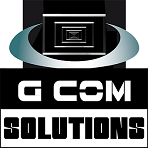- You are here:
- Home »
- Power Apps Training for Healthcare Providers
Power Apps Training for Healthcare Providers
Healthcare providers are constantly seeking ways to improve their patient care, reduce costs, and streamline operations. One solution that has gained popularity in recent years is Power Apps, a platform that allows users to create custom business applications quickly and easily. In this article, we will explore how healthcare providers can benefit from Power Apps training and the advantages of using this platform in the healthcare industry.
What are Power Apps?
Power Apps is a set of tools and services that allows users to create custom business applications without the need for extensive development experience. The platform includes a visual development interface, a set of connectors to common data sources, and a set of templates to get started quickly. Power Apps also integrates with other Microsoft products, such as SharePoint and Power BI.
Benefits of Power Apps for Healthcare Providers
Using Power Apps can provide several benefits for healthcare providers. Some of the most significant advantages include:
Improved Patient Care
Power Apps can help healthcare providers improve patient care by creating custom applications that automate processes and provide better access to patient information. For example, a hospital could create an application that alerts nurses when a patient’s vital signs fall outside of normal ranges, allowing them to respond quickly and prevent complications.
Streamlined Operations
Power Apps can also help healthcare providers streamline operations by automating manual processes and reducing paperwork. For example, a clinic could create an application that automatically schedules appointments and sends reminders to patients, reducing the workload on administrative staff.
Cost Savings
Power Apps can help healthcare providers save costs by reducing the need for custom development and improving efficiency. For example, a healthcare organization could create an application that helps manage inventory and supplies, reducing waste and saving money.
Power Apps Training for Healthcare Providers
To take advantage of the benefits of Power Apps, healthcare providers need to invest in training for their staff. Power Apps training will help healthcare providers understand how to use the platform effectively and create custom applications that meet their specific needs.
There are several training options available for healthcare providers interested in Power Apps. Some of the most popular options include:
Online Training
Online training is a convenient and cost-effective way for healthcare providers to learn about Power Apps. Microsoft offers several online courses on the platform, including introductory courses and advanced training for experienced users.
In-Person Training
In-person training is a more immersive learning experience that allows healthcare providers to ask questions and interact with instructors directly. There are several training providers that offer in-person Power Apps training, and many can customize their courses to meet the specific needs of healthcare providers.
Customized Training
Customized training is an excellent option for healthcare providers that have specific needs or unique workflows. Many training providers can work with healthcare providers to create a customized training program that addresses their specific requirements.
Conclusion
Power Apps is an excellent platform for healthcare providers looking to improve patient care, streamline operations, and save costs. With the right training, healthcare providers can create custom applications that meet their specific needs and provide a competitive advantage. Whether through online training, in-person training, or customized training, healthcare providers should invest in Power Apps training to take advantage of this powerful platform.


